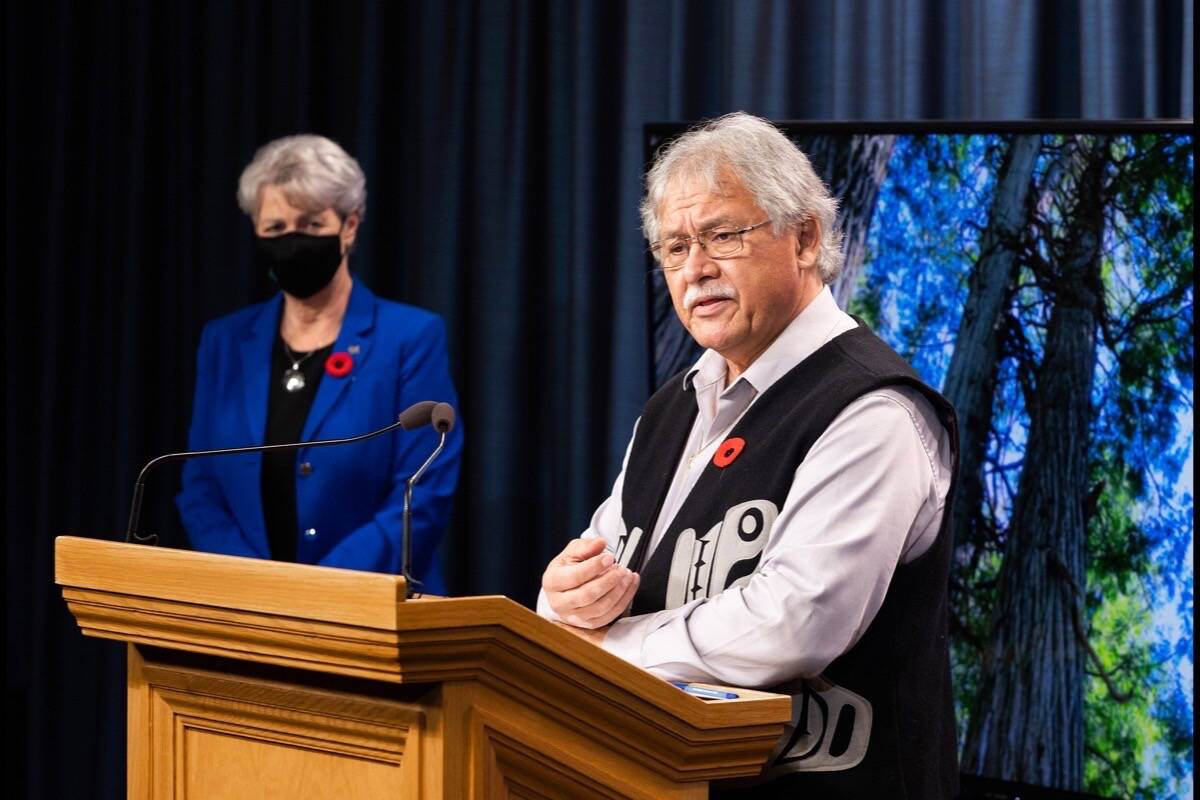After a year marked by sweeping legislative changes and anti-logging protests and arrests on Vancouver Island, B.C.’s forest industry is bracing for big changes during 2022 in how the province’s vast Crown forest land is managed.
After the 2020 B.C. election, Premier John Horgan and Forests Minister Katrine Conroy laid the groundwork for a revolution in forest management that includes transferring or buying out traditional forest harvest licences. The new model establishes 10-year landscape plans where the province resumes control of details like where roads are built, after Indigenous land title holders determine the extent of logging.
Indigenous leaders with logging operations have clashed with mostly urban protesters over a simultaneous effort to defer logging of old-growth trees while landscape plans are being developed. Some Indigenous leaders have said they were presented with complicated preservation maps of their territories and given 30 days to declare which parts they want protected.
Professional forester Garry Merkel, a member of the Tahltan Nation in northwest B.C., is a key figure in the remake. He co-authored the NDP government’s initial old-growth preservation plan, and then was appointed to a technical panel that came up with the old-growth deferral maps that were released in November 2021. Industry leaders have criticized the other panel members as Sierra Club B.C. supporters aligned with protesters who want all old-growth logging stopped.
RELATED: B.C.’s sweeping forest changes pushed through legislature
RELATED: Merkel receives honorary doctorate for Tahltan education
Conroy says the B.C. Council of Forest Industries estimate of 18,000 lost jobs from the old-growth plan assumes that all deferred areas will be off limits to logging. She compares the expected outcome with the Great Bear Rainforest agreement, where timber supply areas continue under substantially increased ecosystem rules.
Merkel agrees. “A commitment to partnership with First Nations and integrating their perspectives on land is fundamental to facilitating the required paradigm shift in forest management that includes old growth as a key component of ecosystem health,” Merkel said when the plan was released Nov. 2. “Once temporary deferrals are in place for the most at-risk ecosystems, government can turn toward implementation of the remaining recommendations of the strategic review and developing a new path forward.”
@tomfletcherbc
tfletcher@blackpress.ca
Like us on Facebook and follow us on Twitter.

